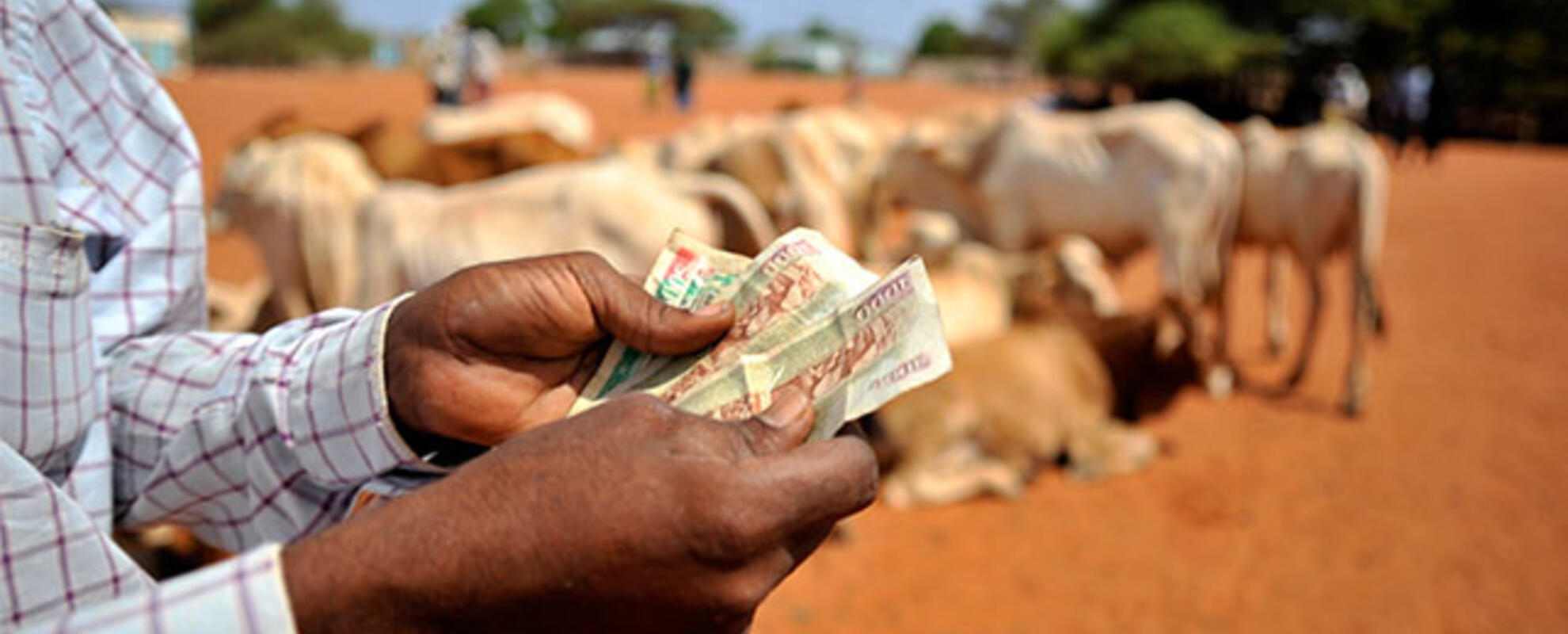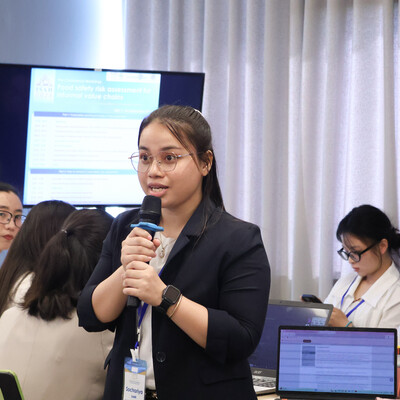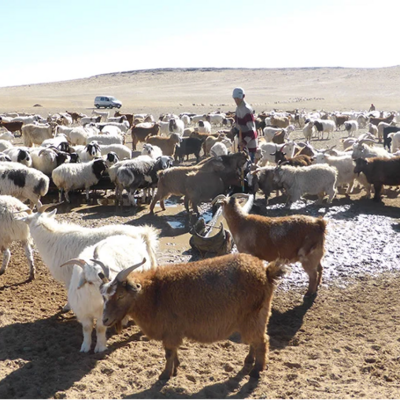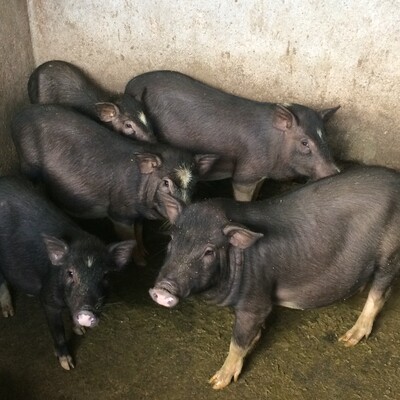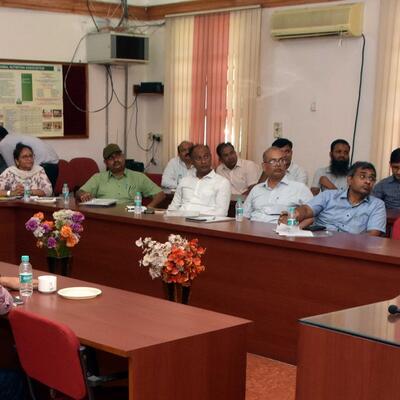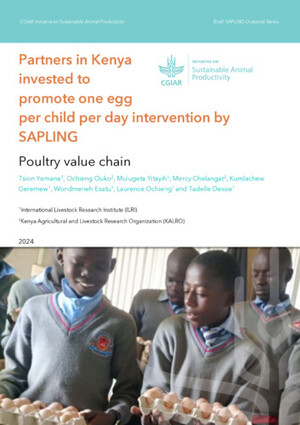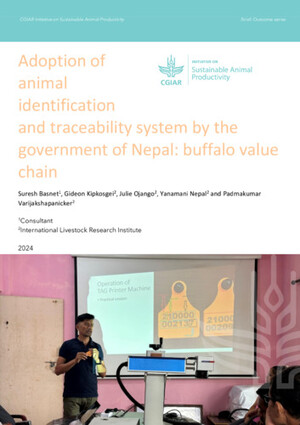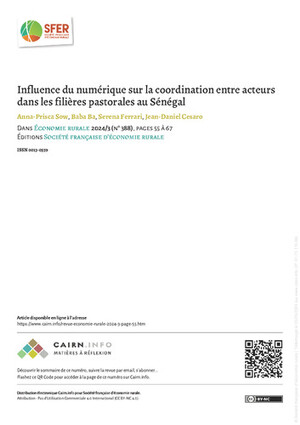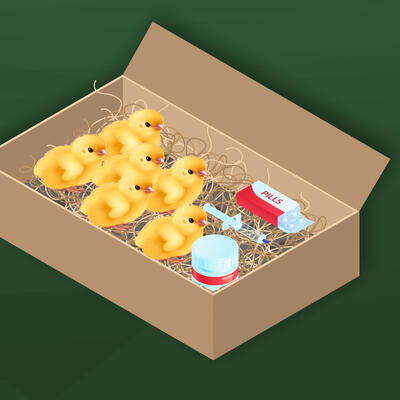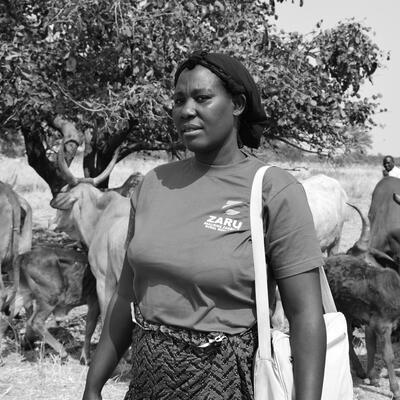
New value chain program using research technologies and innovations to improve livelihoods across Kenya
The Feed the Future Kenya Accelerated Value Chain Development (AVCD) Program focuses on the livestock, dairy and staple crop (root crops and drought-tolerant crops) value chains, covering 21 counties in Kenya.
In line with the Kenya Feed the Future multi-year strategy, AVCD will prioritize commodities key to inclusive agricultural growth. It seeks to lift 317,000 households out of poverty, helping them become food secure and enabling their transition from subsistence to market-oriented farming.A key sector of Kenya’s economy, agriculture contributes 27% to national GDP, makes up 65% of export earnings, and employs 75% of the rural population. The sector is the main source of livelihoods for most of the country’s population and despite facing the recurrent climate change shocks in the last decade; it has demonstrated resilience and potential key to future economic growth.
However, sustaining the government’s targeted annual GDP growth rate of 7% will require extensive policy reform and considerable public and private sector investment in the sector. Despite improvements in the last 15 years, Kenya is still a food and nutrition insecure country. Incidence of undernourishment stands at 25% nationally, affecting between 15% and 85% of the population in high rainfall and semi-arid areas respectively. Reducing poverty, hunger and malnutrition, therefore, remains a priority for the country.
The underlying causes of food and nutrition insecurity in Kenya include low agricultural productivity, frequent droughts, lack of knowledge on good nutrition practices, poor natural resource management, dysfunctional markets, over-dependence on rain-fed agriculture, and limited investment in the country’s arid and semi-arid regions.
With the support of the US-government Feed the Future programs on Resilience and Economic Growth in Arid Lands (REGAL), Improved Resilience (IR) and Accelerated Growth (AG), and the Kenya Agricultural Value Chains Enterprises (KAVES) programs, the Kenyan authorities have been able to help accelerate agriculture-driven economic development and strengthen climate change resilience in the country. The Feed the Future Kenya Accelerated Value Chain Development (AVCD) program seeks to reinforce this progress, applying technologies and innovations widely in selected value chains.
Contributing to the goal to ‘sustainably reduce poverty and hunger in the Feed the Future Zones of Influence in Kenya’, AVCD will work closely with USAID-supported projects and partners to enhance resilience, competitively and sustainably increase agricultural productivity, food security and overall economic welfare of farmers, producers and traders throughout the selected value chains. While the entry point is scaling up the application of agricultural technologies and innovations, AVCD will also address the weakest points of value chains to the benefit all actors.
Selected value chains
The livestock value chain will focus on increasing access to improved grazing areas by 30%, creating 30 additional local market associations applying improved livestock management practices, and setting up 15 private sector enterprises operating as profitable commercial livestock value chain. Implemented in Garissa, Isiolo, Marsabit, Turkana and Wajir counties, AVCD seeks to lift 60,000 households out of poverty and improve their nutritional status
The dairy value chain will contribute to improved diet diversity, food security and rural incomes by improving milk production, productivity, supply, and market access. It will improve by 25% benefitting 40,000 smallholder farmers in Busia, Homabay, Kisumu, Kitui Makueni, Migori, Siaya, Machakos and Vihiga. It also seeks to establish six dairy business hubs reaching 5,000 farmers—offering animal health, artificial insemination, advisory and financial services—and nine innovations platforms serving farmers, processors, market traders and service providers.
The staples value chain of drought-tolerant crops will promote drought-tolerant cereals and legumes: pigeon pea, groundnut, sorghum and millets—boosting the food and nutrition security of 110,000 farmers in Busia, Elgeyo Marakwet, Kitui, Makueni and Tharaka Nithi counties, as well as raising their incomes by 25%.The value chain also seeks to increase yields of the selected crops and reduce post-harvest losses by 30%, establishing at least one market-producer group in each target county.
The staples value chain of root crops will increase productivity and incomes derived from potato and sweet potato farming and improve nutrition for
107,000 smallholder households in Bomet, Busia, Bungoma, Elgeyo Marakwet, Homabay, Kericho, Kisumu, Meru, Migori, Nandi, Trans Nzoia and Uasin Gishu counties. The potato value chain will provide at least 30,000 Kenyan households with high-quality seed of improved varieties to increase farm incomes by at least 20% and the value of sales by 30%. The sweet potato value chain benefits at least 68,000 households with children under five in western Kenya, providing them with productive and nutritious orange-fleshed sweet potato varieties and nutrition education.





